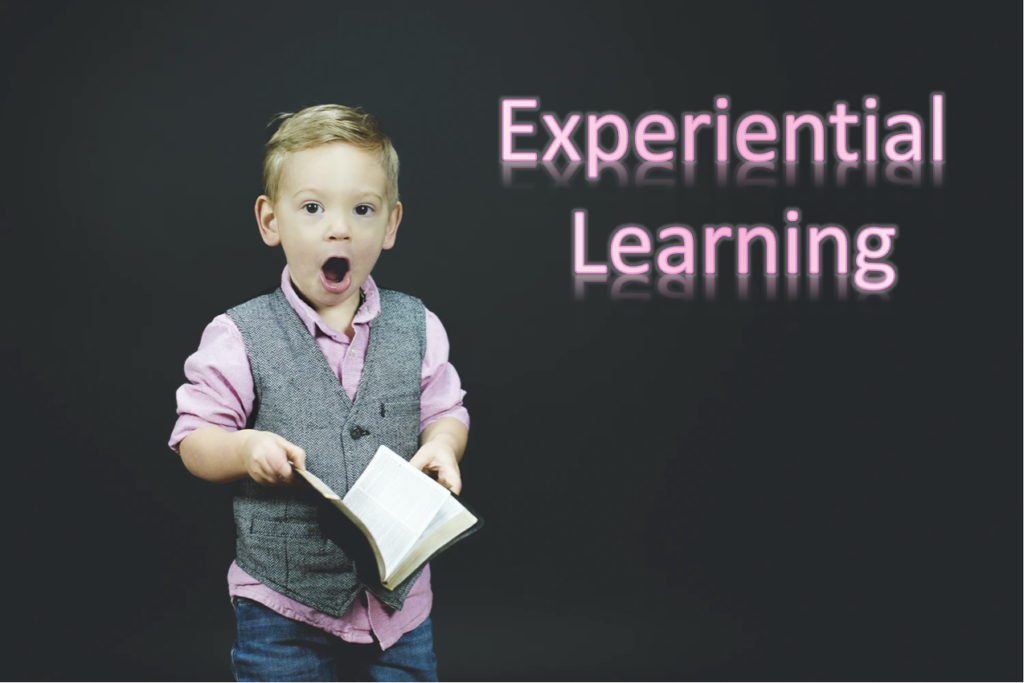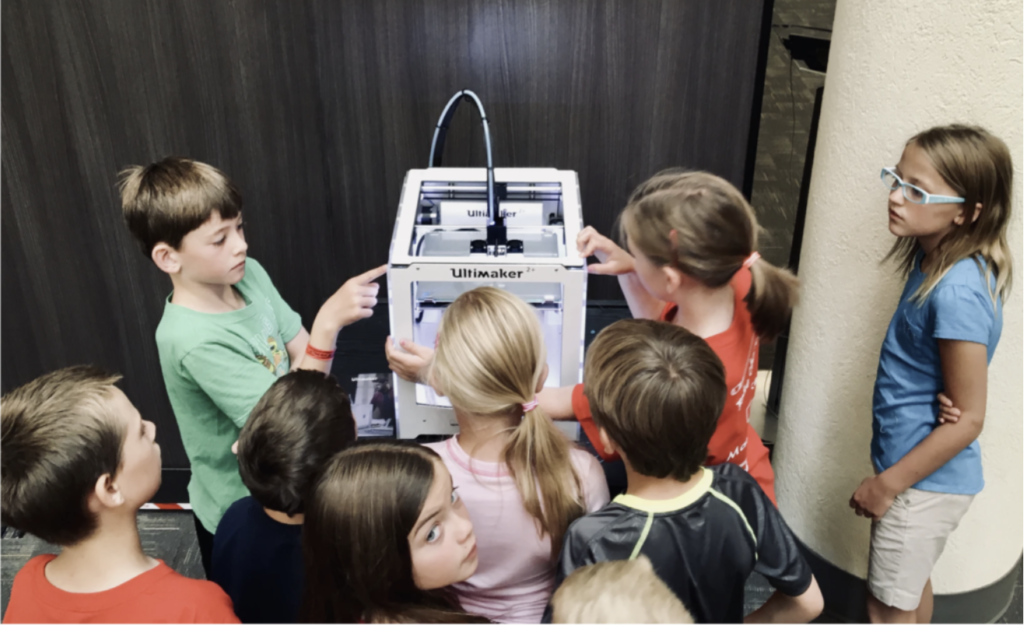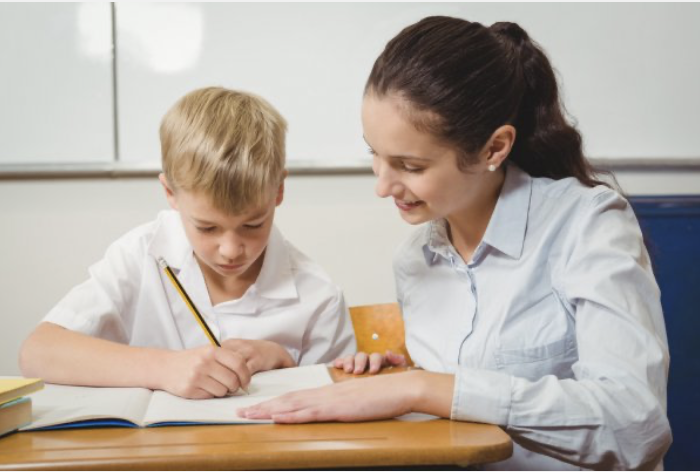

Experiential learning is a holistic approach to learning where individuals are provided with opportunity to experience and interact with information in order to develop a deeper understanding and connection to the material. It is a, “…’direct encounter with the phenomena being studied rather than merely thinking about the encounter, or only considering the possibility of doing something about it.'” (Smith, 2001). Throughout the years, many people have spoken about their interpretation of experiential learning. While everyone has a unique perspective on experiential learning, there are two main characteristics that persist: (a) “Experiential learning is an active process which engages the learner, not a passive process that happens to the learner.”, and (b) There is period of, “careful analysis and reflection of the experience [that] develops the learning.” (Experiential Learning Organization, n.d.). Experiential learning has roots in constructivism as the learner is being actively involved in the learning process. Constructivists, “…look at the learner as more than just an active processor of information; the learner elaborates upon and interprets the given information.” (Ertmer, P. A. & Newby, T., 2018). This is precisely what experiential learning attempts to accomplish through experience and reflection.
If you are looking for a further description of what experiential learning is and how it works, I would suggest checking out this short YouTube video! It makes many connections to how experiential learning works in various situations and why it works.
When reflecting on my groups design blueprint, I believe we have utilized experiential learning through our writers’ workshop activity. In our writers’ workshop, students get to experience the writing process. This begins with the mini lesson where students are presented with the lesson and provided with the basics they need to participate. During this time teacher will often use mentor texts, share their own writing, and teach other key components of the lesson. Often, mentor texts are used as it allows you to take stories that students listen to, connect with, and actually internalize/remember to introduce new writing techniques, to encourage imitation of writing styles and techniques, and to aid and help the students writing overall (Dorfman & Cappelli 2017). In addition to mentor texts, sharing your own writing is also important during this stage as it is a form of modelling which encourages students to try out new strategies and skills and allows students to see teachers as fellow writers rather than just teachers which makes them more comfortable and willing to explain their ideas (Dorfman & Cappelli, 2017) and go on the journey of writing with you. After a sufficient amount of information, modelling, and brainstorming has occurred, student then moves into the independent writing stage. From here, we progress into the conferencing stage where students get to actively receive feedback on their piece. This can be from either peers or the teacher. Finally, after this rigorous process has taken place, the final stage where students get to share the work occurs.

We decided to use the writers’ workshop as it is an experiential learning opportunity that allows students to take on the role of an author. Through this exciting and engaging opportunity, students get the chance to deepen their understanding of concepts and solidify it by actively learning and making sense of it in relation to their experiences and how it relates to the world. We believe that through the writers’ workshop students are more likely to achieve mastery of these skills and progress towards becoming strong and confident writers. In addition to these benefits, the writers workshop also provides the teacher with the ability to scaffold instruction for efficient learning, as well as differentiate learning to meet students’ needs. As a result, the individualistic nature allows teachers to utilize various learning theories for various students, as well as progress throughout the theories as the individuals needs change and/or progress. Students can receive more help in specific areas or can be challenged further by the teacher as needed.
I believe my group will keep this section of our blueprint for our interactive learning resource as it is a great interactive tool that has many benefits. In addition, I would love to utilize the writers’ workshop, and various other experiential learning opportunities, in my future classrooms as a teacher! The benefits are limitless! This post has stirred excitement in me for what teaching could look like. I cannot wait to begin utilizing experiential learning and to dive deeper into the other learning theories through my peers posts and my own research in attempts to gain more ideas on how I can best help my students truly learn.
References:
Dorfman, L. R., & Cappelli, R. (2017). Mentor texts: Teaching writing through children’s literature, K-6 (2nd ed.). Stenhouse Publishers.
Ertmer, P. A. & Newby, T. (2018). Behaviorism, Cognitivism, Constructivism: Comparing Critical Features From an Instructional Design Perspective. In R. E. West (Ed.), Foundations of Learning and Instructional Design Technology. EdTech Books. https://edtechbooks.org/lidtfoundations/behaviorism_cognitivism_constructivism
Experiential Learning Organization. (n.d.). What is Experiential Learning? MTa Learning. https://www.experientiallearning.org/about-mta/what-is-experiential-learning/.
Pattern Based Writing: Quick & Easy Essay. (2019, July 20). Pros and Cons of Writer’s Workshop in Elementary and Middle School: Teaching Writing Fast and Effectively! https://patternbasedwriting.com/elementary_writing_success/pros-cons-of-writer%E2%80%99s-workshop-in-elementary-and-middle-school-part-1/.
Sprouts. (2015, October 12). Experiential Learning: How We All Naturally Learn [Video]. YouTube. Experiential Learning: How We All Learn Naturally
Smith, M. K. (2001) ‘David A. Kolb on experiential learning’, the encyclopedia of informal education, http://www.infed.org/b-explrn.htm.
Photo Credits: Header photo by Ben White on Unsplash
